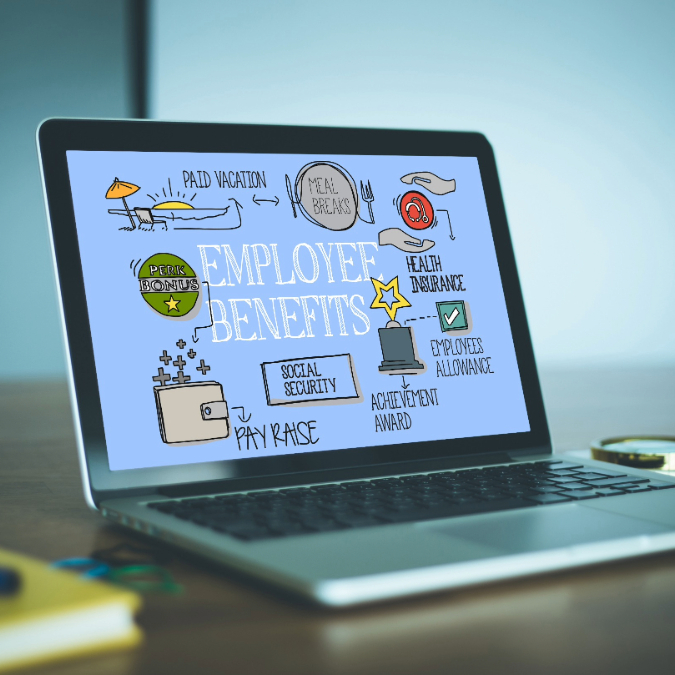
The landscape of work is undergoing a profound transformation, driven by technological advancements, demographic shifts, and evolving societal norms. From the rise of remote work to the increasing influence of artificial intelligence, numerous forces are shaping the way we approach employment and career development. Here are 14 key factors changing the modern workplace.
1. Remote Work Revolution

The COVID-19 pandemic accelerated the adoption of remote work, transforming it from a perk to a necessity for many organizations. This shift has led to a reevaluation of traditional office setups and a greater emphasis on flexible work arrangements.
Even after the pandemic, many workers remained remote or now have a hybrid work schedule. According to the Pew Research Center, around 22 million employed adults in the U.S. work from home all the time. That’s just over one-third of workers in the U.S.
2. Gig Economy Growth

The gig economy continues to expand, providing opportunities for freelancers, independent contractors, and temporary workers. This trend offers flexibility, but it also raises questions about job security and benefits for traditional workers. There is no denying that the gig economy is changing the workplace significantly.
3. Automation and AI

Advancements in automation and artificial intelligence are reshaping industries and redefining the nature of work. While these technologies improve efficiency, they also raise concerns about job displacement and the need for upskilling. In many ways, the future of AI and automation is unclear, such as if it will be further regulated.
4. Rise of Remote Collaboration Tools

The proliferation of digital collaboration tools has enabled seamless communication and teamwork across geographical boundaries. Platforms like Slack, Zoom, and Microsoft Teams have become essential for remote and hybrid work environments.
5. Focus on Employee Well-being
Companies are increasingly prioritizing employee well-being, recognizing its impact on productivity and retention. Initiatives such as mental health support, flexible scheduling, and wellness programs are gaining prominence in the workplace. At many companies, employees are often offered incentives for focusing on well-being, which in turn reduces healthcare costs for employers.
6. Diversity, Equity, and Inclusion

There is a growing emphasis on creating diverse, equitable, and inclusive workplaces. Organizations are implementing policies and programs to address systemic biases and promote a culture of belonging. About 61% of workers say their company or organization has policies that ensure fairness in hiring, pay or promotions, and 52% say they have trainings or meetings on DEI at work.
7. Embrace of Remote Hiring

Remote hiring has become more common, allowing companies to access a broader talent pool and reduce geographic constraints. Video interviews and virtual onboarding processes have become standard practices in many industries. Workers have had to adapt to sometimes awkward video interviews when applying for jobs and adjust their skills accordingly.
8. Agile and Flexible Work Environments

Agile methodologies, originally developed in software development, are now being applied across various industries to promote flexibility, collaboration, and adaptability in the workplace. For many companies, agile work environments mean not limiting workers to a traditional desk, but instead having co-working spaces.
9. Shift Towards Lifelong Learning

Continuous learning is essential in today’s rapidly changing job market. Employers and employees alike are investing in ongoing education and skill development to stay competitive and future-proof their careers. This shift may be in part due to younger workers often replacing more tenured employees because they are more up-to-date on trends in their industry.
10. Remote Training and Development

The move to remote work has prompted a shift towards virtual training and development programs. Online courses, webinars, and e-learning platforms offer accessible and cost-effective opportunities for skill enhancement.
11. Increased Focus on Work-Life Integration

Work-life integration, as opposed to strict separation, is becoming more prevalent as employees seek greater balance and flexibility in their lives. Companies are embracing policies that support employees’ personal and professional responsibilities. Many companies are beginning to offer four day workweeks and unlimited PTO. This shift in our beliefs as a society is continually changing the workplace.
12. Rise of Flexible Benefits

Traditional benefits packages are evolving to meet the diverse needs of today’s workforce. Companies are offering customizable benefits such as flexible hours, remote work options, and wellness stipends to attract and retain top talent. This trend is changing the workplace for the better.
13. Gig Worker Protections

As the gig economy grows, there is a growing push for legislation and regulations to protect the rights and benefits of gig workers. Initiatives such as portable benefits and access to healthcare are being explored to address the unique challenges faced by independent contractors.
14. Environmental Sustainability

Sustainability has become a key focus for many organizations, driving initiatives to reduce carbon footprints and promote eco-friendly practices. Remote work, reduced travel, and energy-efficient office spaces are just some of the ways companies are contributing to environmental sustainability.
The Forever Changed Workplace

The way we work is being shaped by a multitude of forces, from technological innovation to changing attitudes towards work-life balance and diversity. Embracing these changes and adapting to new realities will be essential for organizations and individuals alike as we navigate the future of work in the 21st century.
Read More
10 Reasons it’s Too Late for Boomers To Change Their Retirement Strategies
Blended Family Will: 12 Ways To Split an Inheritance In A Blended Family


Leave a Reply